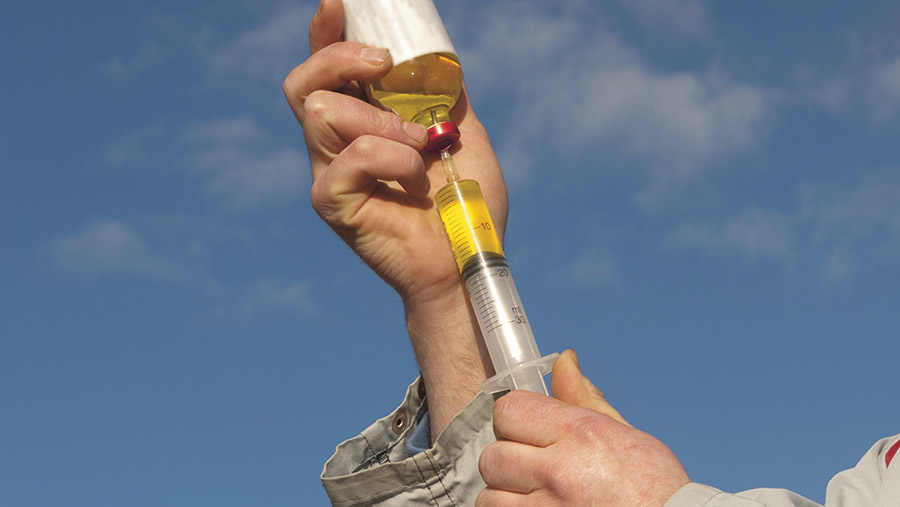Farmer-led approach ‘key to on-farm antibiotics reduction’
 © FLPA/Rex/Shutterstock
© FLPA/Rex/Shutterstock Getting farmers involved in policy creation and implementation is the key to encouraging responsible medicine usage, according to researchers at Bristol University.
Facilitated by the antimicrobial reduction task force, research by Bristol Veterinary School has found leading from the bottom up is the best way to encourage a reduction in antibiotics use on farms.
Speaking at an Animal Health and Welfare Day, Kristen Reyher – senior lecturer in farm animal science at the vet school – said that, while some level of top down regulation will be required to limit antibiotics use, it is more effective to encourage independent, personal responsibility.
“This means every farmer picking up a bottle of medicine on their farm and saying: ‘Do I need to use this? Could I do something else?’”
See also: Two in five UK farmers to invest in animal welfare in 2018
To encourage this, the university decided to work on a new method of communication – motivational interviewing.
“A lot of this is about listening, asking the farmer about what they want to do, finding out what their motivations are and helping to guide them towards practical steps,” explained Dr Reyher.
This led the university to set up an antimicrobial stewardship scheme, led by dairy farmers rather than vets.
Practical farm-led policies to reduce antibiotics use:
- Discussing with vet the types of antibiotics used on farm and changing from critically important antibiotics to more first-line products
- Increasing use of anti-inflammatories for cases of mastitis, lameness
- Focusing on calf health. Measuring colostrum quality with a refractometer, ensuring calves get plenty of colostrum within two to three hours of birth and taking blood from calves to check for antibody transfer
- Adapting sheds and housing to improve ventilation and cow comfort.
“We split farmers into focus groups and asked them to come up with the key points they thought should be in a stewardship policy,” she explained.
What surprised Dr Reyher most was the farmers’ willingness to put forward so many action points. “If I had been asked a to provide a top down stewardship policy, I might have suggested 10 things farmers should do – knowing they would realistically be able to do about four. So, I was blown away when they suggested 20 different things.”
The research team then turned this into a policy which the dairy farmers approved. They then went on to develop their own policy implementation tools.
“After three months, I was very impressed to hear data had been collected by the farms and training programmes had been put in place. Very soon after there was a real change and noticeable reduction in antimicrobial use.”
The relationship between the vet and the farmer is also crucial, added Dr Reyher.
“The vet is the steward of the antibiotics and the farmer often uses them with veterinary guidance. But, ensuring the vet understands the farmer’s goals and the farmer knows why he is using these antibiotics is really important.”
Feedback from the focus groups was extremely positive and reflected the importance of giving farmers the opportunity to create and adopt a policy that works for them, added Dr Reyher.
“Farmers said being involved really made them think about their antibiotic use. It’s amazing what you can do when the power is put in the hands of the producers.”
Farmer action groups
Sponsored by AHDB Dairy and the Langford Trust, Bristol Veterinary School is also working on farmer action groups in the South West. This involves getting farmers together and sharing best practice in a peer to peer way.
PhD students analyse medical records and on-farm data and benchmark this against six other farms across six months, allowing each farmer to explain what is or isn’t working well on farm.
The outcome of this that farmers challenge each other and come up with an action plan for change – for re-evaluation in six-month’s time.
